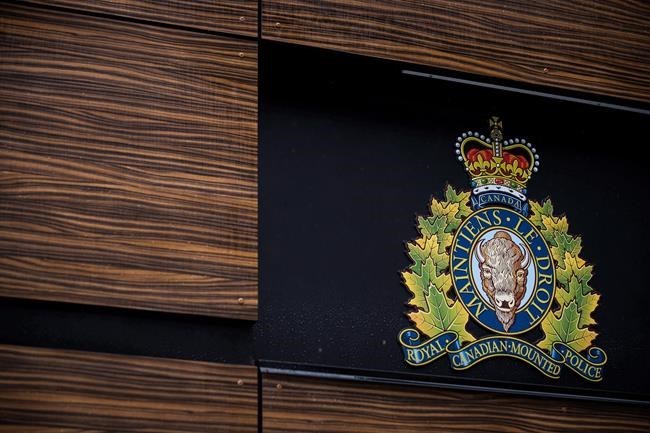OTTAWA — A drive to make the RCMP's workforce more diverse stalled last year as the Mounties struggled to become fully representative of the communities they police, newly available statistics show.
The national police force's report on employment equity for 2018-19 says the diversity of the RCMP's overall workforce had "not changed by any significant measure" from the previous year.
The proportion of women, visible minorities and people with disabilities also remained lower than the rates found in the general Canadian workforce, while the proportion of Indigenous employees was a notable exception.
"Diversity has traditionally been a challenge for police forces in Canada, and the RCMP is no exception," says the report, recently tabled in Parliament.
The killing of a Black man by police in Minnesota has set off a global wave of calls for law-enforcement agencies to address entrenched racism and the oppression of minorities.
RCMP Commissioner Brenda Lucki has acknowledged her police force can improve. But she initially stopped short of endorsing Prime Minister Justin Trudeau's assessment that the force, like all Canadian institutions, exhibits systemic racism.
On Friday, Lucki expressed regret for not doing so.
"During some recent interviews, I shared that I struggled with the definition of systemic racism, while trying to highlight the great work done by the overwhelming majority of our employees," she said in a statement.
"I did acknowledge that we, like others, have racism in our organization, but I did not say definitively that systemic racism exists in the RCMP. I should have.
"As many have said, I do know that systemic racism is part of every institution, the RCMP included. Throughout our history and today, we have not always treated racialized and Indigenous people fairly."
Trudeau said Friday that Lucki had already made strides within the RCMP but added that more needs to be done quickly across the country to ensure police officers, including Mounties, can better serve Canadians.
"There are some deep changes we need to make in our institutions, and we need to work with people who want to make those changes, who want to be part of the solution — and I know Commissioner Lucki is one of those," Trudeau said.
The report says that on April 1, 2019, representation rates among regular RCMP members, as opposed to civilian employees, were 21.8 per cent for women, 11.5 per cent for visible minorities, 7.5 per cent for Indigenous people and 1.6 per cent for people with disabilities.
The numbers are fairly consistent with 2018 data for all police forces in Canada, the report notes.
"These results are not reflective of modern trends being observed in the Canadian population, and signal that a 'one size fits all' approach to attracting, selecting, developing and retaining diverse employees is not the most effective way of achieving diversity in the workforce," the report says.
"The RCMP must continue to strive to increase the diversity of its workforce by removing barriers which inhibit attracting new employees who will bring a greater diversity of identities, backgrounds, experiences and expertise."
Asked for comment on the report, the RCMP said that while year-over-year changes in diversity statistics will vary, the proportion of visible minorities among police officers has been increasing steadily for decades.
The RCMP's modernization plan, spearheaded by Lucki, has identified a more representative employee base as critical to the force's future.
"Delivering culturally relevant community policing solutions requires an in-depth understanding of the challenges people experience while accessing justice," the equity report says.
"Making progress in this area requires meaningful dialogue with community leaders, enabled by a diverse workforce able to overcome differences and capable of building lasting relationships."
The RCMP has tried to address employment-equity shortcomings through initiatives including an internal advisory council, fostering a better understanding of Indigenous traditions, and making the force's uniform and grooming requirements more sensitive to the needs of different faith groups.
The force says it is also trying to attract candidates from different backgrounds through career fairs and a review of its application process to remove possible barriers. It has also developed a strategy to increase diversity at the executive levels in response to a recent audit.
Understanding common barriers such as privilege, bias, harassment and the glass ceiling is not difficult, the report says.
"Oftentimes, the real challenge is acknowledging that equity and inclusion-related issues must be addressed. This may mean accepting different approaches to conducting operations, which can lead to short- and long-term success."
The report recommends a focus on identifying the "success factors" that contribute to a Mountie's advancement to the highest officer ranks.
Reaching the executive level requires access to the right opportunities, networks and training, endorsement from other senior leaders, language skills and a balance between personal obligations and the increased demands of executive leadership, it says.
However, members of the underrepresented groups "are likely to face additional challenges" in this respect.
These factors point to a need to identify leadership potential early, so the organization is well-positioned to help promising members advance, the report says.
This report by The Canadian Press was first published June 12, 2020.
—Follow @JimBronskill on Twitter
Jim Bronskill , The Canadian Press



